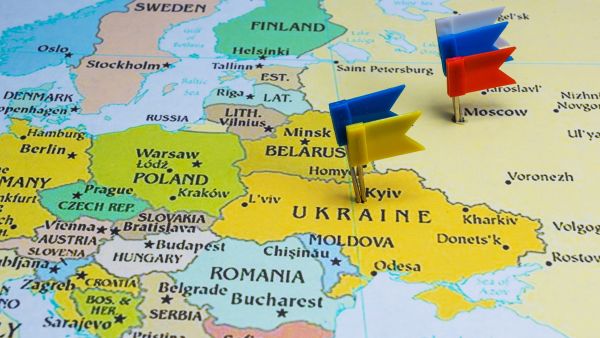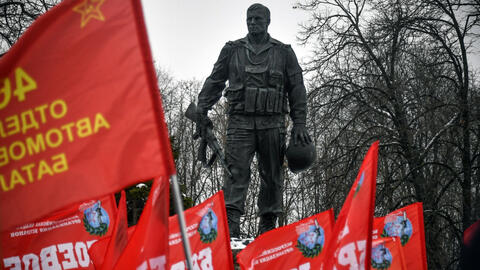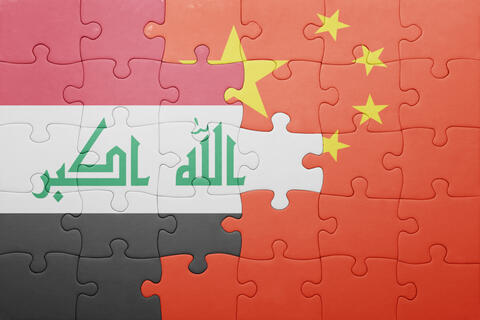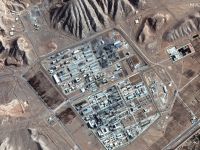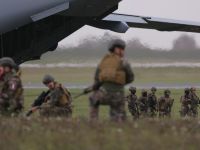By Farzad Ramezani Bonesh
Russia-Ukraine relations have always been tense since the developments in Ukraine in 2014, following that, Russia annexed the Crimean peninsula. Separatists in Ukraine's Donetsk and Luhansk provinces have established self-proclaimed Russian-backed republics in eastern Ukraine.
Russia's current interests and goals in Ukraine
Ukraine was the most important republic of the Soviet era after Russia. In addition to geopolitical, geostrategic competition, Ukraine is important for Russia, in terms of political, economic, cultural, and nostalgic dimensions. In terms of identity and culture, the supporters of Russia, Orthodoxians, and Russian-speakers in Ukraine have cultural, religious, and linguistic ties to Russia. But Moscow accuses Ukraine of trying to join NATO, and sees Ukraine's growing European identity as a threat to Russia. It has therefore called for iron guarantees that Ukraine (and other former Soviet republics) will not join NATO and that nuclear missiles will leave the region.
In fact, Russia has made a series of unilateral grievances and demands to limit NATO to the 1997 borders.
Putin called the collapse of the Soviet Union "the greatest geopolitical catastrophe of the twentieth century.” Therefore, it seeks to revive Russia's position on the continent of Europe and world affairs and its approval by the West in the context of the era of US superpower in the world being challenged.
From Russia's point of view, NATO expansion to the east and Ukraine's membership in NATO, the presence of aircraft and warships in the Baltic Sea and countries such as Lithuania, Romania and Bulgaria, strengthening NATO security and defense relations with Ukraine, holding exercises, delivering modern weapons, providing assistance and Strategic consultation, development of cyber threat capabilities, strengthening defense training, etc. and ignoring Moscow's demands is against Russia's interests.
From this point of view, as Ukraine moves closer to the West, Russia will lose everything it had in Eastern Europe. Therefore, if Russia believes that its security is at stake, it considers the use of force to be entirely appropriate and focuses on its veto power over the foreign policy choices of its non-NATO neighbors.
In fact, in pursuit of ‘strategic stability’, Russia is seeking ‘reciprocal security guarantees’ and greater security concessions than the United States and NATO. It also seems that at least Moscow's strategic goal is the full and comprehensive implementation of the special situation for eastern Ukraine or the federalization of the country.
Therefore, in order to achieve political-strategic goals, Russia can, in the first step, apart from putting its military forces near the borders of Ukraine, preserve its interests in Ukraine, by using software levers such as the policy of waiting, talking and consulting with Kiev, Brussels and Washington. In the second step, if the conditions are not provided and the sensitivities of Russia are ignored, it can put under the consideration the approaches of rhetoric and war.
Variables involved in the outbreak of the Russia-Ukraine war
Ukraine is a NATO ally but not an official member of it. It is seeking NATO membership. Ukraine has included NATO membership and the development of a distinct partnership with NATO in its national security strategy.
However, many in Ukraine believe that the actions and presence of Russian forces in eastern and borders of Ukraine, Russia's military movements and activities, the increase in its military presence in the Black Sea, etc., have raised concerns about a Russian attack.
Russia's war with Ukraine will be ‘terrible’, but the Ukrainian military has been strengthened since 2014, with Ukrainian President Volodymyr Zelensky saying his country is ready for a Russian hybrid war. 72% of Ukrainians have 100% trust in the military, which is the most popular government institution in Ukraine.
In addition to US aid to Ukraine, Western allies, including Britain, have increased their equipment and supplies to Ukraine. Some in Kiev, however, fear that Russia's aggressive diplomacy will force NATO to accept Moscow's security proposals for Eastern Europe and implement a permanent veto by Ukraine and Georgia on NATO membership.
In contrast, any Kremlin approach to the Ukraine crisis depends on domestic, regional and international factors and variables. In this regard, the type of Russian resistance inside Ukraine, the type of Kiev approach, the reaction of the United States and NATO allies, the consequences of a possible war, etc., affect any war in Ukraine.
However, Moscow is tolerant as long as it does not deal a significant blow to Russia's geopolitical quest and does not do much damage to its national security and strategic interests. On the other hand, the United States and the new German coalition government see small-scale Russian aggression as limited sanctions. Europe is focused on its internal challenges, and the deployment of more troops in Poland and Romania is not widespread.
There is also no consensus among NATO members on the level of new sanctions against Russia. Sanctions against Russia could also damage the global financial system, severe inflation, stock market crashes and other financial instability, and escalate tensions between Moscow and the West.
In addition, while Putin is not worried about his re-election, if the situation becomes worse, Biden should observe the negative consequences in the United States. On the other hand, the Kremlin can have the support of Beijing, but the West will probably not have a direct participation in the likely war between Russia and Ukraine.
Elsewhere, Moscow knows that any civil war and disintegration in Ukraine would hurt Europe's oil and gas exports. In addition, Moscow must look at the consequences of any of its hardware approaches in Ukraine to its relations with Europe and the United States. A complete shutdown of gas supplies to Europe also costs Gazprom and Russia more than $ 200 million a day.
In this regard, although the United States has turned its attention to Asia-Pacific, it has rejected Russia's request for a ban on Ukraine's membership in NATO. US senators are also close to agreeing on a law to impose sanctions on Russia over its actions in Ukraine, and the British government is to introduce new laws against Russia.
Vision
Looking to the future, despite the complete blockade of Ukraine by Russia on the three axes of Belarus, the Black Sea and eastern Ukraine, in the probable scenario the two countries are not ready for a full-scale war and the costs and economic consequences will be very heavy for them. Although, strong signals indicate Russian military movements, but the war in Ukraine could have global consequences. That means, much tougher sanctions against Russia over the Stream 2 rolling pipeline project, Russia's suspension of Swift, and sanctions on Russian banks could be under consideration by the West.
Meanwhile, with a wave of US, NATO and EU diplomacy with Russian officials, the two sides are likely to move towards ‘diplomacy’ and to reduce tensions and meet some Kremlin demands.
At the same time, identifying two self-proclaimed republics, Donetsk and Luhansk, in eastern Ukraine, and highlighting the ethnic identity of Russian-speaking and orthodox people, or proposing federalism, would be another Moscow strategy.
Earlier, Putin accused Ukraine of committing "genocide" against the local Russian-speaking population. Therefore, apart from the more limited and less dangerous option of controlling the eastern parts of Ukraine, the long-term instability of Ukraine and the escalation of cyber warfare may be under consideration instead of ‘comprehensive war’.
Another unlikely scenario would be limited operations and a brief and severe defeat for the Ukrainian military aimed at demonstrating Russia's ability to force Ukraine to comply with Russian demands. Under these circumstances, even the establishment of a pro-Kremlin or neutral leader in Kiev would be a means of Moscow's pressure on Ukraine. Even now, some in Ukraine fear the threat of a coup and the establishment of a pro-Russian government in Ukraine.
A more unlikely scenario could be the Kremlin's desire to secede from Ukraine. That means, Ukraine should be divided into two parts, east of the Dnieper River and west of it. In this case, Ukraine will lose all its shores in the Black Sea, and the eastern part of Ukraine will be separated from the western part.


